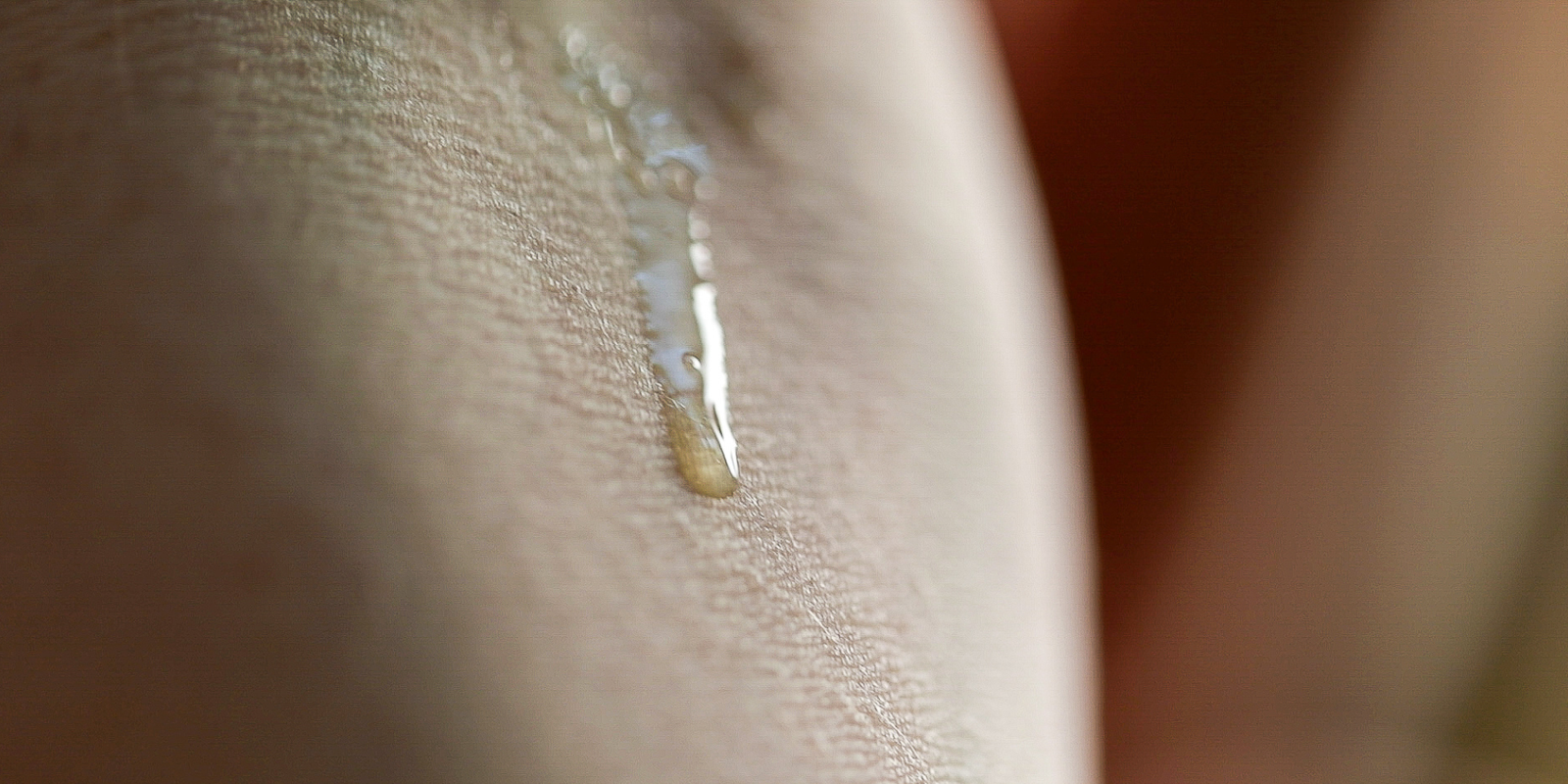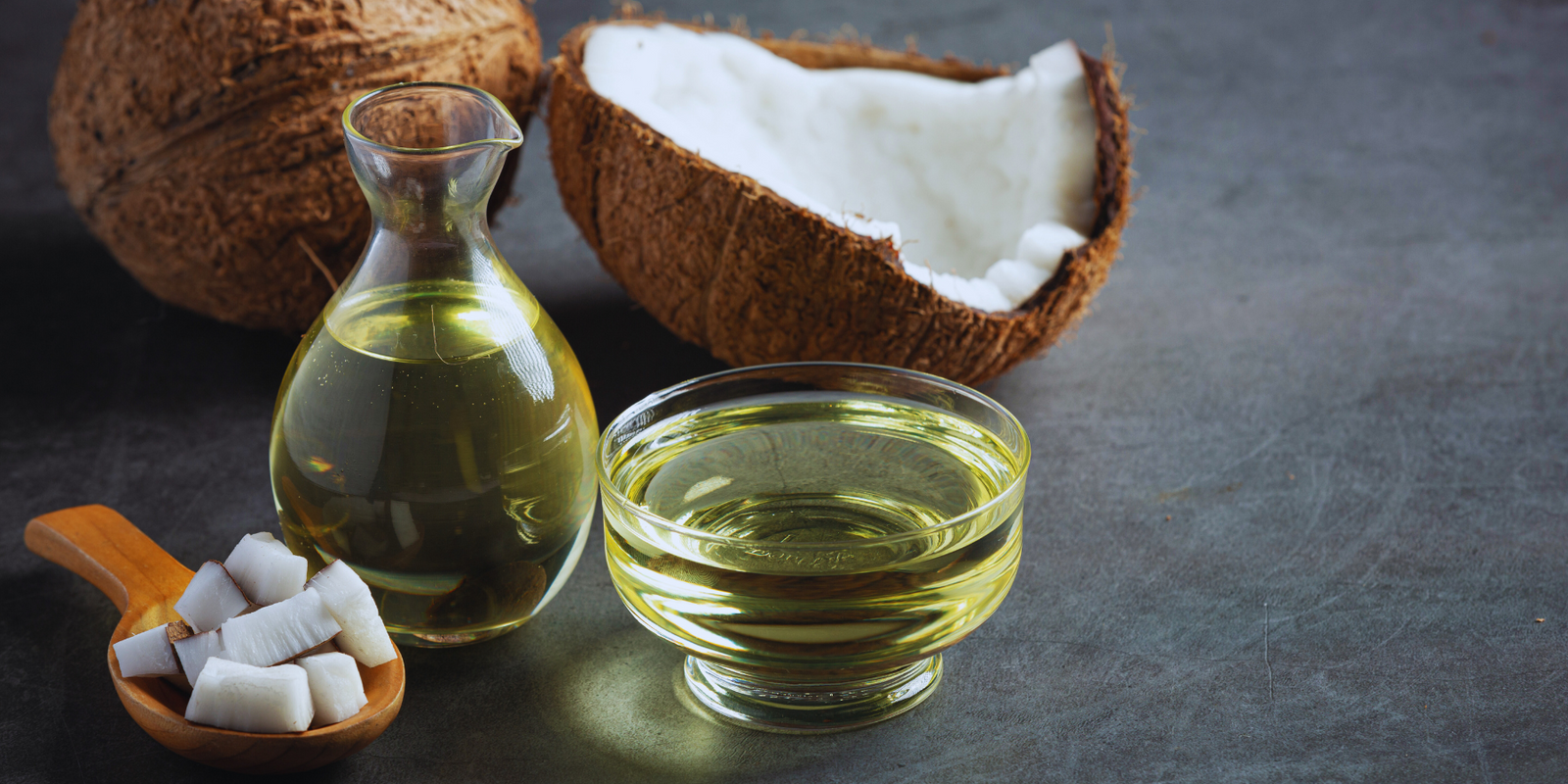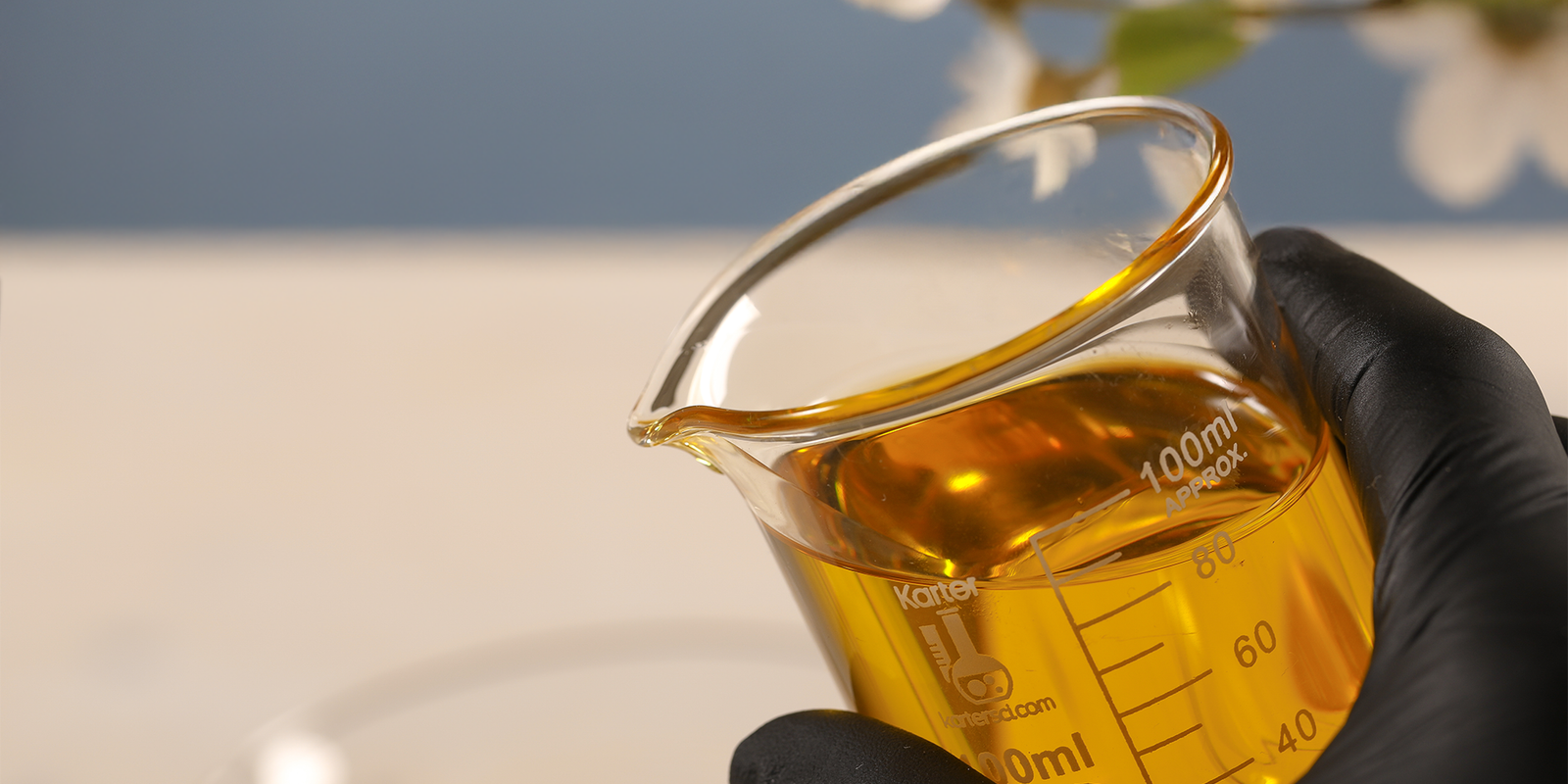Exclusive gift on orders $200+
Exclusive gift on orders $200+
Signs of Skin Barrier Breakdown and What To Do About It

Signs of Skin Barrier Breakdown and What To Do About It
Introduction
As an esthetician, I’ve seen firsthand the consequences of skin barrier breakdown on my clients’ skin health. The skin barrier, or stratum corneum, is the outermost layer of the skin that acts as a protective shield against environmental aggressors, pathogens, and moisture loss. When this barrier is compromised, it can lead to a host of skin issues. In this post, I'll go over the most common signs of skin barrier breakdown and offer some practical advice on restoring and maintaining a healthy skin barrier.
What is your skin barrier, and what does it do?
Your skin barrier, also known as the stratum corneum, is the outermost layer of your skin that serves as a protective shield. It is composed of tightly packed dead skin cells and lipids (fats/oils)that retain moisture, prevent transepidermal water loss and protect against environmental aggressors such as pollutants, bacteria, and allergens.
Why is skin barrier function so important?
A healthy skin barrier is essential for maintaining overall skin health, as it helps to keep your skin hydrated, smooth, and resilient. When your skin barrier is compromised, it can lead to issues such as dryness, sensitivity, acne, redness, and increased susceptibility to infections and irritants. Proper care and maintenance of your skin barrier are crucial for achieving and sustaining a balanced, healthy complexion.
Signs of skin barrier breakdown.
Skin barrier breakdown can reveal itself through a number of symptoms. Some people may experience one of the following symptoms, while others may experience a combination of them.
Increased Sensitivity and Irritation
Symptom: Your skin feels more sensitive than usual, reacting to products that previously caused no issues. You might experience stinging, burning, or redness, even from products that should not cause a reaction, such as hypoallergenic formulas.
Cause: A compromised skin barrier allows irritants and allergens to penetrate more easily, triggering an inflammatory response and making your skin extremely reactive to any substance.
Dryness and Flakiness
Symptom: Persistent dryness and rough, flaky patches on the skin despite regular moisturizing or increased water intake.
Cause: Your skin barrier’s ability to retain moisture is impaired, leading to increased transepidermal water loss (TEWL) and chronically dehydrated skin.
Breakouts and Acne
Symptom: Unexplained breakouts, including both inflammatory (red, irritated, pus-filled) and non-inflammatory (blackheads, whiteheads, and bumpiness) acne.
Cause: Your skin has a microbiome that functions similarly to your gut microbiome. A weakened skin barrier can disrupt the balance of your skin's microbiome, leading to an overgrowth of acne-causing bacteria.
Redness and Inflammation
Symptom: Persistent redness, inflammation, and a feeling of uncomfortable tightness.
Cause: Without its protective shield, your skin becomes more prone to inflammation and irritation.
Dehydration and Dullness
Symptom: Your skin appears dull and lifeless and lacks its natural glow.
Cause: Dehydrated skin due to increased TEWL and lack of proper hydration can lead to a dull complexion. Your skin’s natural exfoliation process is slowed down, causing a buildup of dead skin cells.
Common causes of skin barrier breakdown.
There are quite a few causes that can contribute to skin barrier breakdown. The more that your skin is subjected to, the greater the negative effect on your skin. Fortunately, while some causes are unavoidable, like aging, skin conditions, and environmental factors, the majority are in your control.
Over-Exfoliation
Excessive use of physical or chemical exfoliants can strip away your skin's protective layer, leading to increased sensitivity, redness, and irritation. Over time, this can compromise your skin's ability to retain moisture and protect against environmental aggressors. Your skin regenerates on an approximately 30-day cycle, and when you exfoliate too frequently, your skin cannot repair and rebuild as quickly as you are wearing it down.
Harsh Cleansers
Cleansers with high pH levels or containing harsh surfactants can disrupt your skin's natural lipid barrier. Your skin functions best when it is at about a pH of 5, which is slightly acidic, and many traditional cleansers have very alkaline pH levels of 8+. This can lead to dryness, irritation, and a weakened barrier, making your skin more vulnerable to damage. When I formulated our Fountain Of Youth Cleansing Clay, I made sure to include Apple Cider Vinegar in the formula, which lowers the pH to a skin-friendly acidic level for this very reason.
Environmental Factors
Exposure to extreme weather conditions, such as cold, wind, and UV radiation, can damage the skin barrier. Pollution and environmental toxins can also penetrate the skin more easily, leading to oxidative stress and inflammation.
Lack of Moisturization
Failing to moisturize adequately can result in dry, flaky skin. Without sufficient moisture, your skin barrier can become compromised, leading to increased transepidermal water loss (TEWL) and susceptibility to irritation.
Overuse of Highly Active Ingredients
This is a big one. Excessive use of potent skincare ingredients like retinol, AHAs, BHAs, and vitamin C can cause quite a bit of irritation and damage to your skin barrier. While these ingredients can have some benefits, using them too frequently or in high concentrations can be extremely detrimental to your skin's health, function, and appearance. This is the top cause I encounter among facial clients.
Underlying Skin Conditions
Conditions like eczema, psoriasis, and rosacea inherently weaken the skin barrier, making it more prone to irritation, dryness, and inflammation.
Improper Diet and Hydration
A diet lacking in essential nutrients, particularly fatty acids, vitamins, and antioxidants, can significantly affect skin health. Internal dehydration also reduces your skin’s ability to maintain its barrier function, leading to dryness and flakiness.
Stress and Lack of Sleep
Chronic stress and poor sleep can negatively impact your skin’s repair mechanisms. Stress hormones like cortisol can weaken the skin barrier, making it more susceptible to damage and slower to heal.
Aging
As we age, our skin's natural lipid production decreases, leading to a weakened barrier. This can result in increased dryness, sensitivity, and a greater risk of barrier breakdown.
Frequent Use of Alcohol-Based Products
Products containing high levels of alcohol can dry out your skin and strip away its natural oils. This can lead to a compromised barrier and increased vulnerability to environmental stressors and irritants.
How to remedy skin barrier breakdown.
Once you have determined that your skin barrier needs some TLC, there are several things you can do to remedy it and get your skin health back on track.
Simplify Your Skincare Routine
Advice: Pare down your skincare routine to just the essentials: a gentle cleanser and a barrier-repairing moisturizer.
Reason: Overloading your skin with too many products can further irritate and weaken your skin barrier. The average skincare product has 20+ ingredients, and the average routine has 5+ products, potentially exposing your skin to hundreds of different ingredients. These ingredients can negatively interact with one another, making it extremely difficult to pinpoint which ones are not working well with your skin.
Nourish Your Skin With Fatty Acids
Advice: Look for products containing fatty acids; face oils are a great source. Linoleic acid (omega-6), in particular, is particularly effective for restoring your skin’s barrier. (That’s why I chose Sacha Inchi Oil as the primary oil in our Holy Grail Face Oil- it is the richest plant-based source of linoleic acid!)
Reason: Fatty acids, which are lipid molecules, are crucial for restoring the skin’s natural barrier and retaining moisture. Since lipids make up a significant part of your skin barrier, applying lipids back to your skin will help naturally strengthen it.
Avoid Harsh Exfoliants and Actives
Advice: Cut (way!) back on strong exfoliants like AHAs, BHAs, and retinol.
Reason: These can be too harsh on already compromised skin and exacerbate the issue. You want your skin barrier to heal and restore itself, and these types of products will only wear it down. I have seen so many people’s skin heal just from ditching these products alone.
Hydrate via Your Environment
Advice: Add a humidifier to your bedroom and run it overnight to prevent your skin from losing hydration while you sleep.
Reason: When there is low humidity in your environment, water will evaporate from the surface of your skin much quicker, leading to dry skin. During the day, it can be tough to regulate, but by creating the ideal environment while you sleep, your skin can stay better hydrated.
Support from the Inside Out
Advice: Stay hydrated, eat a balanced diet rich in omega-3 fatty acids, and avoid ultra-processed foods whenever possible.
Reason: Proper nutrition supports skin health and barrier function from within. Your skin is an elimination organ as much as it is a protection organ. At least 50% of what shows up on your skin directly results from what’s going on inside your body. Highly inflammatory ultra-processed foods can trigger acne and irritation, particularly on the forehead area.
A simple skincare routine for a healthy skin barrier.
I have worked with many skincare lines in my years as an esthetician. Some have included as many as ten different products in a single routine! My firsthand experience has been that the more products and the harsher the ingredients used in a skincare routine, the more damaged and irritated the person’s skin barrier becomes. This was my primary motivation when I started making my own skincare products- to create products with fewer ingredients that actually improved skin health, and that did more for your skin, so you didn’t have to use so many different things.
My personal skincare routine, and what I recommend to so many of my clients, is to simply wash your face with our Fountain Of Youth Cleansing Clay and moisturize with our Holy Grail Face Oil. Our Fountain Of Youth Cleansing Clay is just the right pH so that it does not wear down your skin’s barrier and is extremely gentle for daily use. Our Holy Grail Face Oil is rich in fatty acids, particularly barrier-restoring linoleic acid, and every ingredient is gentle and nourishing to your skin, so it supports healthy barrier function instead of wearing it down. Often, this simplification in your skincare routine is enough to significantly improve your skin's health and appearance.
Conclusion.
In summary, your skin barrier is a critical component of the overall function of your skin. When that barrier is worn down, primarily through harsh product use, your skin suffers in many ways as a result. By choosing skin-nourishing products and avoiding irritating ingredients, you can ensure that your skin’s barrier, and ultimately, its health and appearance, stay in harmony.
Also in Apotheca Edit

The Top 10 Best (And Worst) Oils to Use On Your Face
I get asked all the time about using oils like avocado, olive, and coconut on the face—and the truth may surprise you. Not every “natural” oil is good for your skin. In this post, I break down the best and worst oils to use, what their comedogenic ratings really mean, and how to choose the ones that will actually nourish your skin instead of clogging it.

The Truth About Coconut Oil in Skincare: Why I Never Use It on the Face
While coconut oil does have benefits for skin and hair, its fatty acid profile makes it a less-than-ideal choice for facial skincare. If your goal is clear, youthful, and radiant skin, there are far better options.

Are Seed Oils Bad For Your Skin?
When it comes to seed oils and your skin, it’s not about avoiding them- it’s about choosing wisely.
Subscribe
Sign up to get the latest on sales, new releases and more …
Reviews
See why 1000's have simplified their skincare with Flora Mirabilis.
